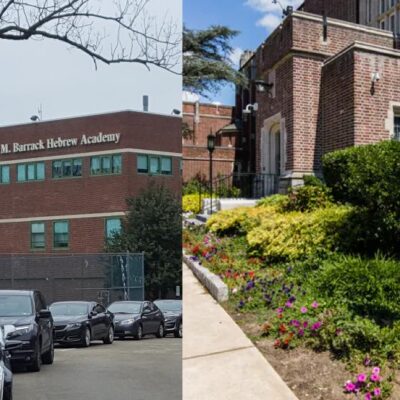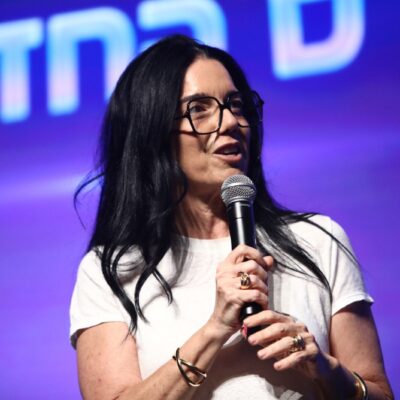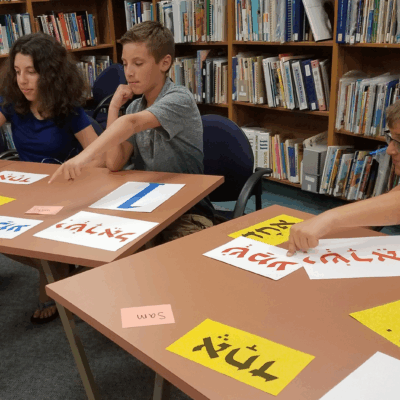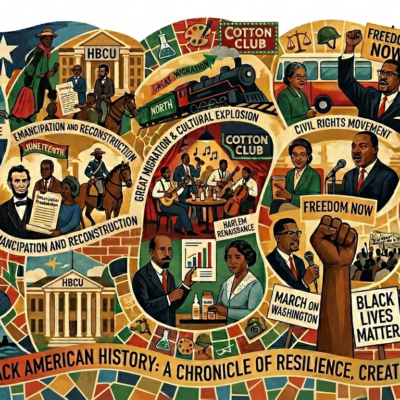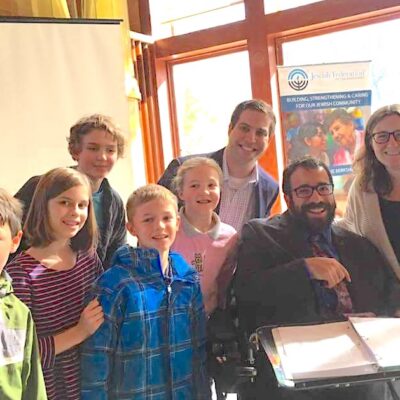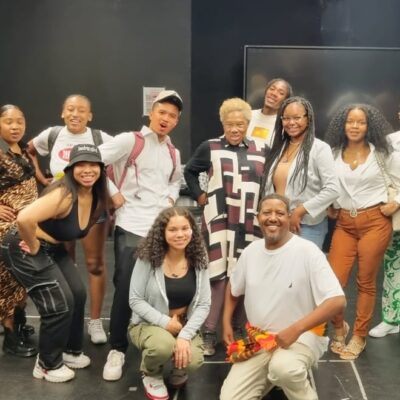Opinion
Now is the Time to Do More to Fight Jewish Poverty

By Jewish Funders Network and
The Harry and Jeanette Weinberg Foundation
The number of people living in low-income Jewish households in New York has doubled over the past two decades. And many more Jewish families around the country say they are struggling to make ends meet.
The challenges posed by Jewish poverty are substantial (click here to access an overview of what we know about Jewish poverty in the United States). The question that we have been asking at the Jewish Funders Network (JFN) and The Harry and Jeanette Weinberg Foundation: what can we do about it?
As a first step, at the National Convening on Jewish Poverty held earlier this year, we announced the establishment of a national affinity group dedicated to addressing the issue. Any approach to combating Jewish poverty must be collaborative, incorporating input and action on the part of direct service providers, researchers, philanthropy, Jewish Federations, media outlets, and advocates who are invested in helping vulnerable members of the Jewish community achieve economic mobility. JFN and Weinberg certainly don’t have all of the answers on how to alleviate poverty in the Jewish community. The answers are more likely to lie with Human Services agencies, Federations, and most importantly, the people in our community who are struggling with poverty on a daily basis. Therefore, the vision for this affinity group is an ongoing, nationwide collaborative focused on learning and action to address poverty within the Jewish community.
The Inaugural Meeting:
On June 11th, 65 leaders gathered in Chicago for the first meeting of the National Affinity Group on Jewish Poverty. These leaders represented all of the sectors listed above and traveled from 21 cities around the US (and one from Canada). Over the course of an afternoon, members of the group were presented with data and research on Jewish poverty, confronted various myths and facts concerning what poverty looks like within the Jewish community at large, and developed concrete goals for the affinity group moving forward.
Through several large and small-group discussions, a series of themes emerged. First, the group saw a need to change the narrative, alleviate the stigma, and build awareness on the issue of Jewish poverty. Before we can develop solutions to the problem, we need to make people aware of, and understand, it. The group also identified a need to assemble more reliable and uniform data on low–income Jews. Strategies to combat poverty within the Jewish community must be informed by accurate and reliable data. At present, we have a limited picture of what Jewish poverty looks like. Finally, the group advocated for breaking down silos and for looking outside the Jewish community to understand best practices and model programs focused on alleviating poverty. It is our responsibility to bring best practices for combating poverty to our community.
As with any effective collaborative effort, members of the affinity group will drive the agenda. However, JFN is excited to take on the role of group administrator – responsible for holding the group accountable to achieving goals and meeting deadlines – with Deena K. Fuchs, Executive Vice President, as the primary point person. Deena joined JFN in June of 2019 after almost two decades at the Avi Chai Foundation, most recently as Senior Director of Strategy and Partnerships. She has deep expertise in building philanthropic partnerships (read here for more), and we are excited for her leadership of this initiative.
Early Updates:
Much of what is achieved through this affinity group will occur outside of its meetings, and we want to use this space to share what initiatives are moving forward related to alleviating Jewish poverty. A few exciting updates related to this work follow:
- Data and Evaluation:As stated above, one of the needs identified by the group is for better and more aligned data on Jewish poverty. In response, the Jewish Federations of North America (JFNA) is assembling a group of communities around the country that will work towards developing a standard group of questions related to poverty for future community studies. Stay tuned for more updates to come on this.
- Jewish Poverty in the Media: The Forward has taken a lead in sharing stories that can elevate the issue of Jewish poverty. See below for articles published to date on this issue:
- https://forward.com/culture/421071/why-we-dont-talk-about-jewish-poverty-and-why-we-should/
- https://forward.com/culture/421269/tackle-jewish-poverty-questions-to-ask/
- https://forward.com/culture/425395/this-food-pantry-uses-technology-and-kindness-to-help-feed-hungry-jews-and/
- https://forward.com/culture/425449/the-problem-with-measuring-jewish-poverty/
- https://forward.com/culture/425545/a-coordinated-response-to-jewish-poverty-in-greater-boston/
Do More, and Stay in Touch!
The requirement for participating in the affinity group is simple: commit to doing more to fight poverty in the Jewish community! If you are a direct services agency, how can you reach more people and deepen your impact? If you are a funder, are you funding efforts to combat Jewish poverty, and can you make a greater commitment in this area? If you are a media outlet, are you shining a light on Jewish poverty?
Learn how one community is doing more to combat Jewish poverty:
“While in San Francisco for the Weinberg Foundation’s National Convening on Jewish Poverty, I attended a session on “No Wrong Door” service models led by Sarah Abramson, Senior Vice President of Strategy and Impact for the Combined Jewish Philanthropies (CJP) of Greater Boston. Along with many community leaders in Philadelphia, I was inspired by Boston’s remarkable collaborative between various human service organizations, especially each organization’s ability to move past “territory” and truly focus on people in need. After hearing the outcomes of this collaborative, we have asked Sarah to present this model to a group of providers in August here in our community. We are hopeful that we can learn from this model to build on other efforts related to Jewish poverty in Philadelphia and better serve the growing population of individuals and families in need.”
– Paula Goldstein, President/CEO of Jewish Family and Children’s Service of Greater Philadelphia
We want to hear what you are doing to fight poverty in your community and any ideas you may have for this affinity group. Please stay connected by sharing a comment to this article or reaching out to Deena (Deena@jfunders.org).

 Add EJP on Google
Add EJP on Google
